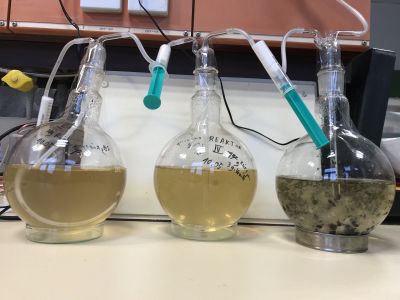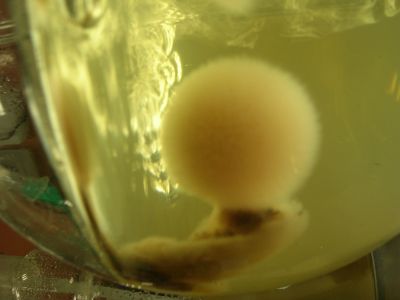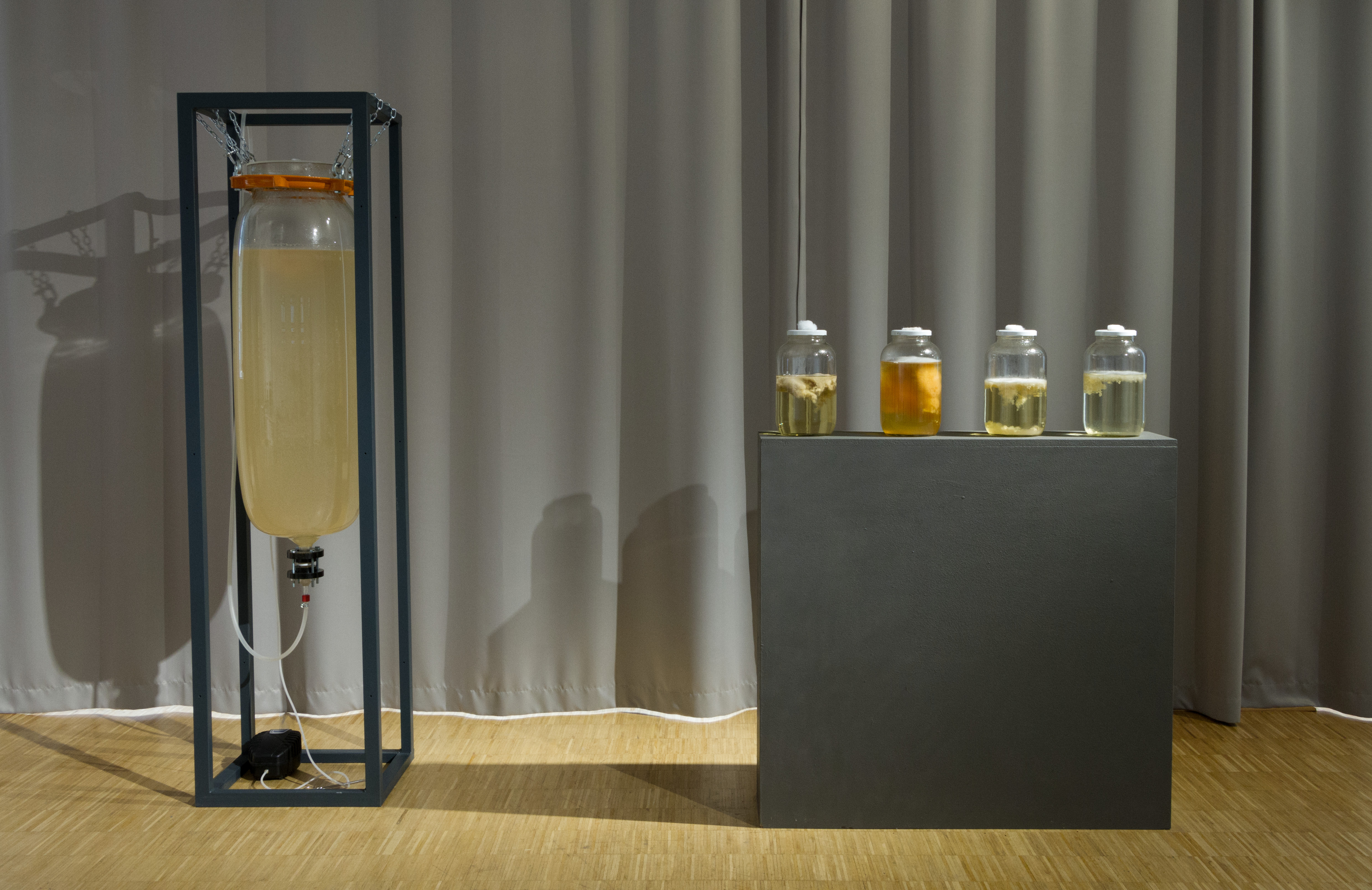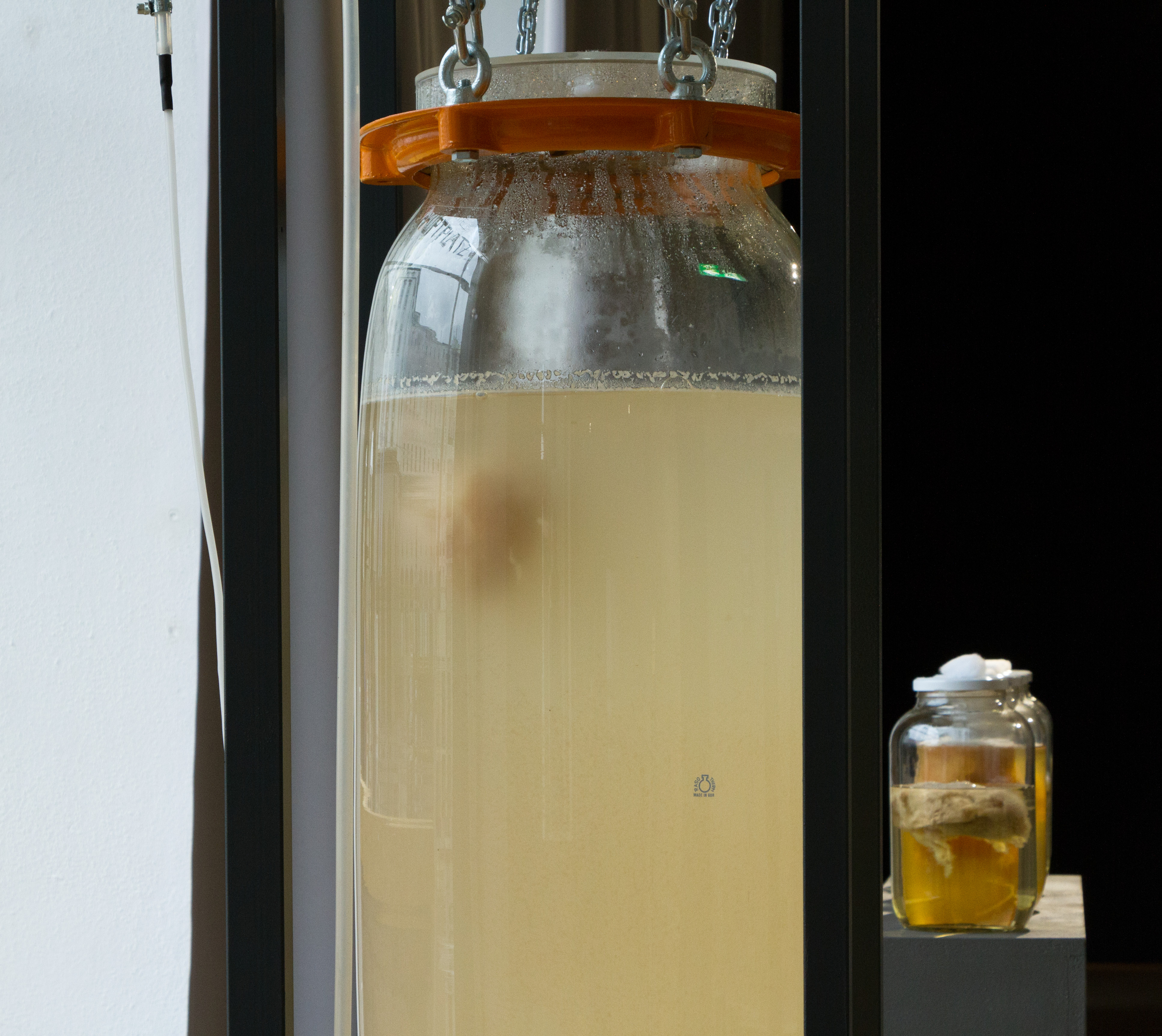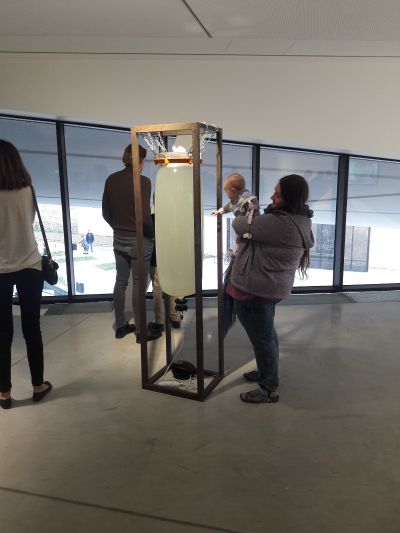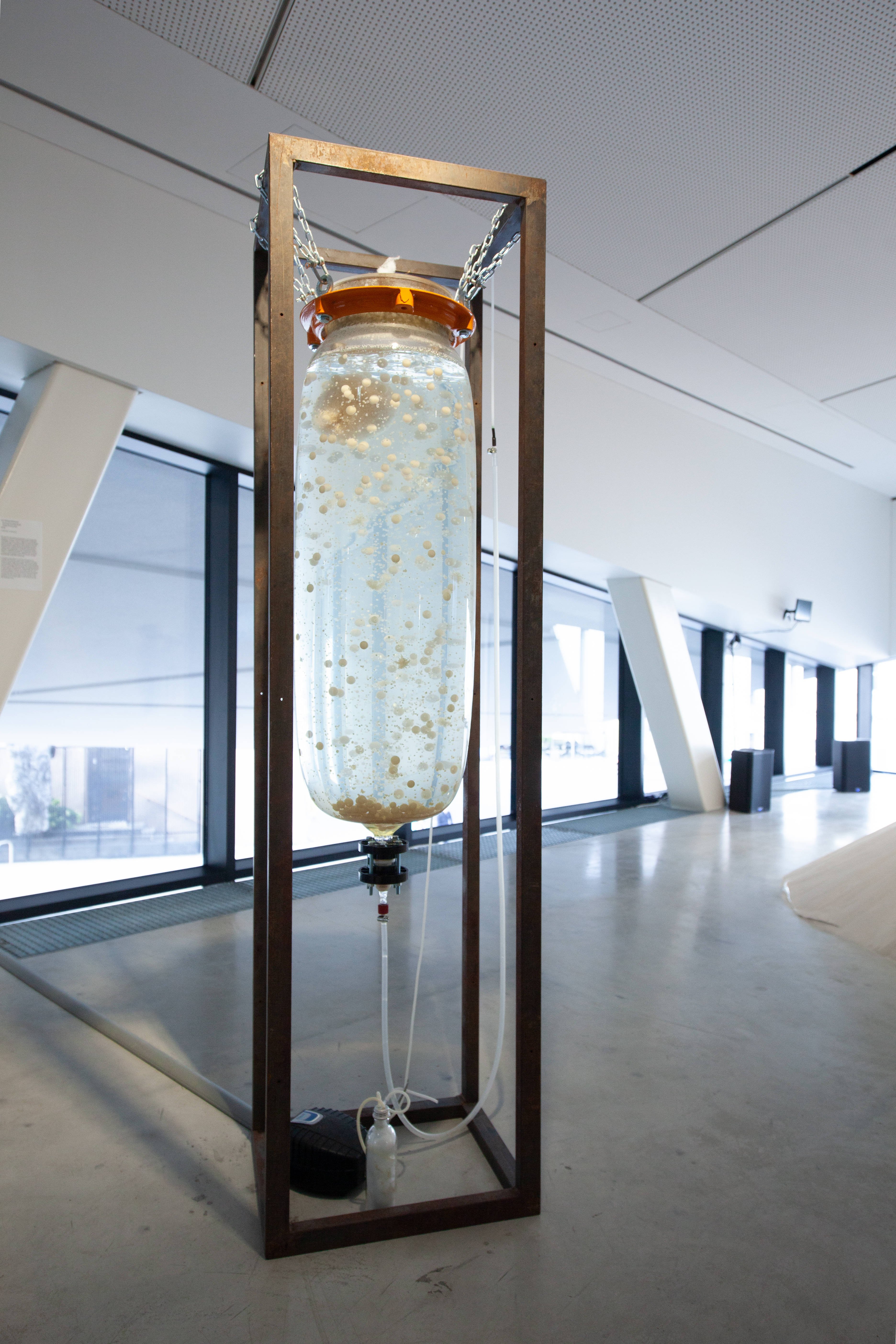No edit summary |
No edit summary |
||
| Line 49: | Line 49: | ||
[[File:Close encounter@arselectronica.jpeg]] | [[File:Close encounter@arselectronica.jpeg]] | ||
[[File:Babyandfungus. | [[File:Babyandfungus.jpeg|400px]] | ||
[[File:Closeencounter vilnius. | [[File:Closeencounter vilnius.jpeg]] | ||
Revision as of 14:55, 15 April 2020
Life-Support-Systems
Abstract
I define systems that serve the purpose of sustaining live of the participating organisms as life-support-systems. This definition distinguishes life-support-systems from the term habitat, which is the natural environment of an organism, in which it can find food, shelter and reproduce. Life-support-systems are artifical and meant to stabilize the parameters of life of the participating organisms. This can include parameters from a natural enviromnent, maybe even mimicking it, but it is not the directive of a life-support-system.
When an organisms wants to leave its natural habitat and colonize or travel to another habitat in which it cannot sustain its life-parameters, it needs a life-support-system. In fiction there are interesting examples of this bare necessity: from Dracula, who has to sleep in soil of his homeland, that he ships in coffins to London so he can sustain his life there, to the fremen-suits of the natives of Arakis, the desert planet in Frank Herbert‘s Dune, who use sophisticated wearables to survive in conditions of extreme heat and draught.
My intention is to design a life-support-system that will sustain the life of a fungus for as long as possible.
Based on the theory that a fungus will grow indefinetly, as long as it is provided with enough food and has no physical boundaries¹, I grow Pleurotus Ostreatus and Pleurotus Djamor in liquid culture. This theory opposes the opinion that fungi are subject to a process called senescence or biological ageing that leads to loss in vigor and the eventual death of a individuum².
Let the fungi grow in a shape that makes it easier for hominina to relate to it. The shape should be appealing and spark empathy.
Investigate and search for partners to the fungi, that can supply the needed resources to sustain life.
Design a system that sustains the live of the fungi and their partner for as long as possible.
Prove that there is no such thing as senescence for fungi and that the effect described as such can be prevented in a laboratory set-up.
Methodology
Two fungi in the same genus Pleurotus ostreatus and djamor are cultivated in liquid culture. The formation of clusters is controlled by media formulation and by pressure of the aeriation-system.
¹ see page 206 Mycelium is a hologram; Radical Mycology; Peter McCoy Chthaeus Press ISBN 978-0-9863996-0-2
² see page Growing Gourmet and Medicinal Mushrooms Paul Stamets
